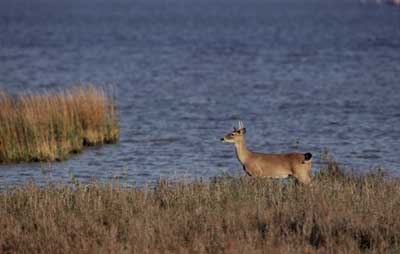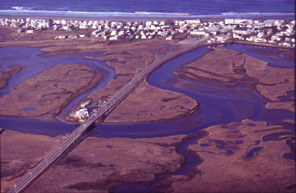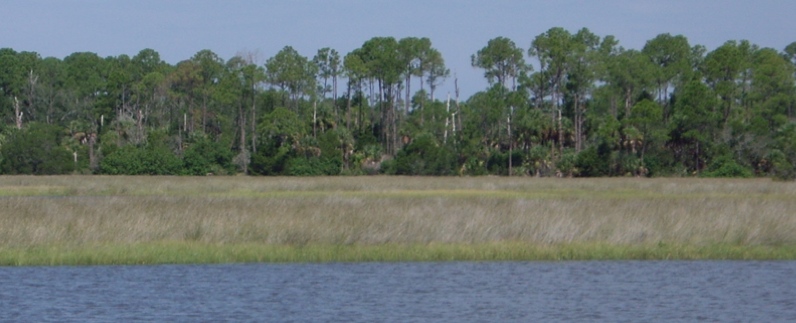
Wetlands'
Preservation
by Joseph Siry
In wetlands are the preservation of the world, to borrow from Henry David Thoreau. As an historian of wetlands, I can try to convince you that wetlands purify your water, act as bulwarks against floods (thereby reducing costs), that they provide nurseries for fisheries, wildfowl and wildlife, and that they are necessary for ecological knowledge about climate change in the past to accumulate for future generations of students. However, I will mostly tell you that without wetlands we can not drink safe water except through costly technologies that filter out the pollution and toxins in our rivers.
 Without direct cost to us –we do not pay wetlands for their numerous services– wetlands do for society what costly
water treatment plants and sewage disposal systems do for municipalities. Without
wetlands large cities in Southeastern USA would have no drinking water. 17
million Floridians drink groundwater. Without mountains to catch the snow and
channel the rain Florida has only its wetlands to hold and store rain water.
In the aggregate wetlands operate in such a way as to provide us with health
insurance because without water people perish, without water industry moves
elsewhere, without water farmers wither like the crops in their arid soil.
Without direct cost to us –we do not pay wetlands for their numerous services– wetlands do for society what costly
water treatment plants and sewage disposal systems do for municipalities. Without
wetlands large cities in Southeastern USA would have no drinking water. 17
million Floridians drink groundwater. Without mountains to catch the snow and
channel the rain Florida has only its wetlands to hold and store rain water.
In the aggregate wetlands operate in such a way as to provide us with health
insurance because without water people perish, without water industry moves
elsewhere, without water farmers wither like the crops in their arid soil.
An "isolated wetland" is a myth of the imagination because wetlands connect us to the life giving rain and they channel the flood waters away from densely populated areas. Some wetlands allow for water to sink deep into underground rivers. They are all part of a team and that team supplies industry, agriculture and municipalities with life-giving clean water.
 Long
disparaged as obstacles to wealth, or as breeding grounds for mosquitoes, wetlands
are threatened today because of suburban sprawl. A basic law of ecology is that
"everything must go somewhere." As far as water is concerned, when you drain
a wetland you don't get rid of the water you just displace it to somewhere else.
During a flood it will come back to deluge your personal belongings. Functionally
wetlands are a good neighbor when it rains, they may be our survival when it
floods.
Long
disparaged as obstacles to wealth, or as breeding grounds for mosquitoes, wetlands
are threatened today because of suburban sprawl. A basic law of ecology is that
"everything must go somewhere." As far as water is concerned, when you drain
a wetland you don't get rid of the water you just displace it to somewhere else.
During a flood it will come back to deluge your personal belongings. Functionally
wetlands are a good neighbor when it rains, they may be our survival when it
floods.
Those of us who find beauty in the iris, or the cattails, or the wading birds of a marsh will easily tell you that wetlands are a nursery for fisheries and wildlife. But that is not enough to convince the economically minded owner, who because of taxes, must develop or sell their property to recover their investments. Wetlands are a common property resource that belongs to all of us because they function to regulate the amount of water. By the water evaporating from shallow wetlands in the summer heat, acres of flooded vegetation generate rain over vast areas of the country where wet prairies, grassland or forests still exist.

Wetland's are not wasted lands and always should remind us of the need to constantly remember that economic prosperity ultimately depends on nature's bounty. Water, symbolized in Baptism as the redeemer of human life, is the driver of all living things. The absence of water on Mars and Venus ultimately means that life will fail to thrive.
Our industrial, agricultural, and municipal way of life are equally dependent on water, fresh healthy, clean water. We can protect that connection by making that relation to water visible to all by protecting wetlands. Redemption without water is possible, but life without water is not.
Estuary is an entailed maritime garden.
530 words